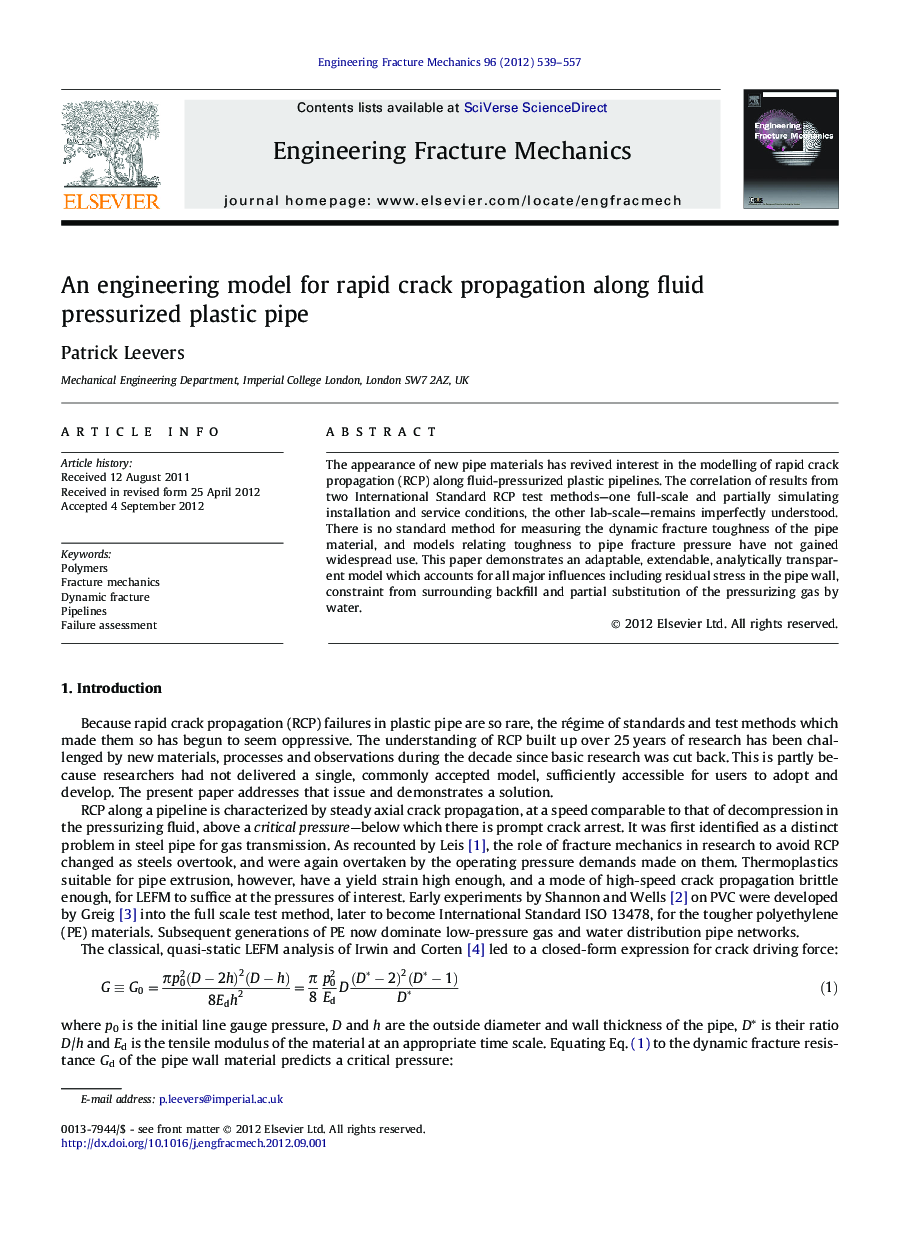| Article ID | Journal | Published Year | Pages | File Type |
|---|---|---|---|---|
| 770963 | Engineering Fracture Mechanics | 2012 | 19 Pages |
The appearance of new pipe materials has revived interest in the modelling of rapid crack propagation (RCP) along fluid-pressurized plastic pipelines. The correlation of results from two International Standard RCP test methods—one full-scale and partially simulating installation and service conditions, the other lab-scale—remains imperfectly understood. There is no standard method for measuring the dynamic fracture toughness of the pipe material, and models relating toughness to pipe fracture pressure have not gained widespread use. This paper demonstrates an adaptable, extendable, analytically transparent model which accounts for all major influences including residual stress in the pipe wall, constraint from surrounding backfill and partial substitution of the pressurizing gas by water.
► We demonstrate a user-friendly model of rapid crack propagation (RCP) in plastic pipe. ► Air-pressurized, full-scale RCP tests may be unduly influenced by backfill properties. ► Lab-scale RCP tests may be unduly influenced by the containment cage. ► RCP in water-pressurized pipe is controlled mainly by the fluid density. ► Residual stress effects on RCP do not act through the crack driving force.
